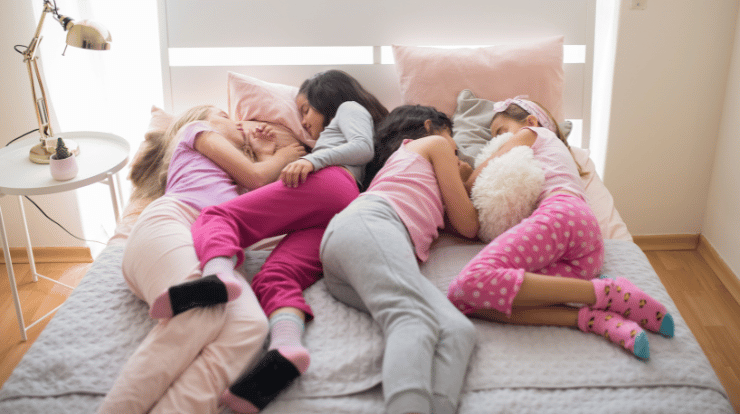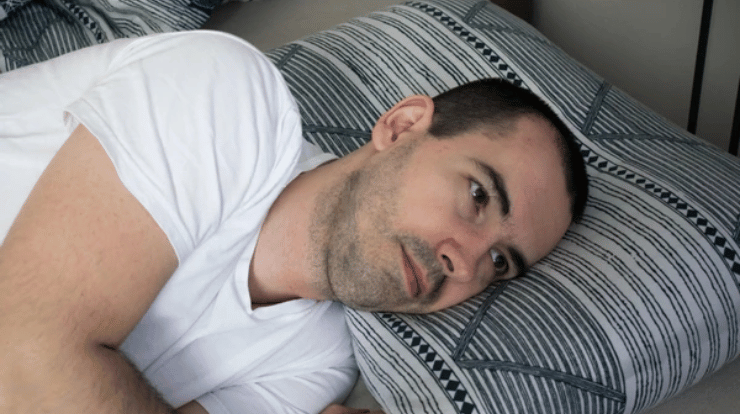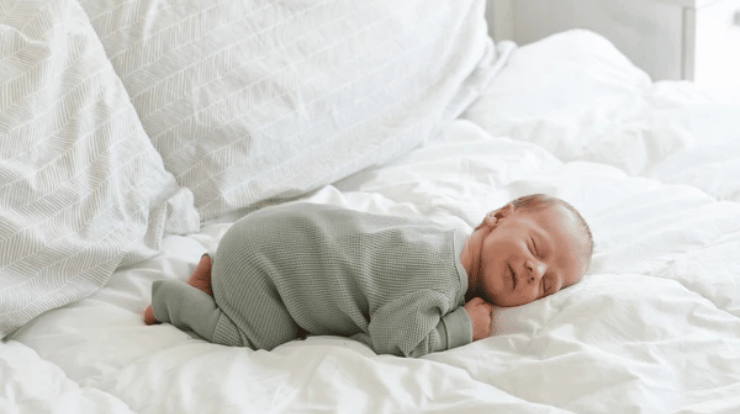
Getting enough sleep is crucial for children’s physical, emotional, and cognitive development. The amount of sleep that a child needs depends on their age, but the National Sleep Foundation (NSF) provides general guidelines for how much sleep is appropriate for different age groups. It’s important to note that these are guidelines and every child is different, some may require more or less sleep, it’s best to consult with a pediatrician if you have concerns about your child’s sleep.
How Much Sleep Do Kids Need?
How many hours of sleep do child need? The amount of sleep that children need varies depending on their age.
Child Sleep Chart By Age:
Here is a general chart that provides information on how much sleep do kids need by age:
Age | Recommended Sleep |
Newborn (0-3 months) | 14-17 hours (including naps) |
Infant (4-11 months) | 12-15 hours (including naps) |
Toddler (1-2 years) | 11-14 hours (including naps) |
Preschooler (3-5 years) | 10-13 hours (including naps) |
School-aged child (6-12 years) | 9-12 hours |
Teenager (13-18 years) | 8-10 hours |
It’s important to note that these are just general guidelines and some children may need more or less sleep. Additionally, the quality of sleep is also important, so it’s a good idea to ensure that children have a regular bedtime routine and a comfortable sleep environment.
How much sleep does a 12-year-old need?
The recommended amount of sleep for 12-year-old children is 9-12 hours per night. This range is slightly less than the amount of sleep that younger children need but still provides the necessary rest for growing and developing bodies.
During the rapid growth spurts of childhood and adolescence, sleep plays a crucial role in physical growth and development, as well as in the maintenance of good health. Many physical and mental health issues can arise from lack of sleep, such as obesity, diabetes, cardiovascular disease, anxiety, and depression.
It’s important for 12-year-olds to have a consistent sleep schedule, meaning that they should go to bed and wake up at the same time every day, including on weekends. Having a regular bedtime routine, such as winding down with a book or taking a bath, can also help to promote better sleep. Additionally, a comfortable and dark sleep environment is important, with a comfortable bed, and a quiet and cool room.
It’s also important to mention that individual needs may vary, so it’s important to pay attention to signs of sleep deprivation, such as difficulty paying attention, feeling overly tired during the day, irritability, and decreased performance in school. If a 12-year-old consistently gets less than 9 hours of sleep per night or has trouble falling asleep or staying asleep, it’s a good idea to talk to a healthcare provider to make sure they’re getting the sleep they need.
How much sleep does a 13-year-old need?
The recommended amount of sleep for 13-year-old children is 8-10 hours per night. This range is less than the amount of sleep that younger children need but still provides the necessary rest for growing and developing bodies.
Adolescence marks the transition period of the body and the brain, with changes in the way the body responds to its environment, the way it grows and develops, and the way it is regulated by hormones. During this period, sleep is crucial in maintaining physical growth, development, and good health.
If a 13-year-old consistently gets less than 8 hours of sleep per night or has trouble falling asleep or staying asleep, it’s a good idea to talk to a healthcare provider to make sure they’re getting the sleep they need. Additionally, it’s important to pay attention to signs of sleep deprivation, such as difficulty paying attention, feeling overly tired during the day, irritability, and decreased performance in school.

How much sleep does a 5-year-old need?
The amount of sleep that a 5-year-old child needs can vary depending on the child’s individual needs and development. However, most 5-year-olds require an average of around 10-13 hours of sleep per day, with the bulk of this sleep taking place at night. This includes daytime naps for some children, although many will have stopped taking naps by this age.
During this stage of life, children are still growing and developing rapidly, which is why a consistent and adequate sleep schedule is crucial for their overall well-being. The body does most of its repair work and growth during sleep, especially for children whose bodies and brains are still developing. Not getting enough sleep may cause delays in physical and cognitive development, as well as an increased risk of behavioral and emotional problems.
It’s also worth noting that 5-year-olds may sometimes experience sleep-related problems, such as difficulty falling asleep, night-time awakenings, nightmares, or sleepwalking. If a child consistently has trouble sleeping, it’s important to talk to a healthcare provider to rule out any underlying medical condition or disorder that may be causing the problem.
How much sleep does a 6-year-old need?
The recommended amount of sleep for a 6-year-old child is around 9-12 hours per night.
At 6 years old, children are entering into a new phase of development, and their bodies and brains are growing at a fast pace. Sleep plays an essential role in this process, as it helps consolidate memories and learning that occurred during the day and provides energy for the next day. Also, during sleep, hormones have released that help with physical growth and repair, as well as strengthen the immune system.
It’s also good to note that 6-year-olds are starting to become more independent, and they might be capable of making simple decisions when it comes to their bedtime routine. Encourage them to participate in creating and maintaining the routine, such as helping to choose the book to read before sleep.
As with any age, it’s important to monitor a child’s sleep habits, and if there are any concerns about the quantity or quality of their sleep, it’s best to consult a healthcare provider for guidance.
Kids Sleeping Medicine
There are several over-the-counter and prescription medications that can be used to help children sleep, but it’s important to consult with a pediatrician before giving any medication to a child. The correct dosage and safety precautions will vary depending on the child’s age, weight, and overall health.
Anti-histamines such as diphenhydramine (Benadryl) and doxylamine (Unisom) are commonly used as sleep aids in children. These medications work by blocking the effects of histamine, a chemical in the body that can cause drowsiness. However, these medications can cause side effects such as dry mouth, dizziness, and confusion, especially if they are used in high doses or for an extended period of time.
Melatonin is another medication (You can buy it from amazon) that can be used to help children sleep. Melatonin is a hormone that is naturally produced by the body and is responsible for regulating the sleep-wake cycle. It can be helpful for children with insomnia or other sleep disorders, as well as for children who have difficulty adjusting to new time zones or who have disrupted sleep schedules. However, melatonin should only be used under the guidance of a doctor, as its safety and efficacy have not been fully established in children.
It is always best to try non-medicinal methods of helping a child sleep, such as establishing a consistent bedtime routine and creating a comfortable sleep environment. This includes making sure the room is dark, quiet, and at a comfortable temperature, and avoiding screens for at least an hour before bedtime. Encouraging regular exercise and a healthy diet during the day can also help children sleep better at night.






